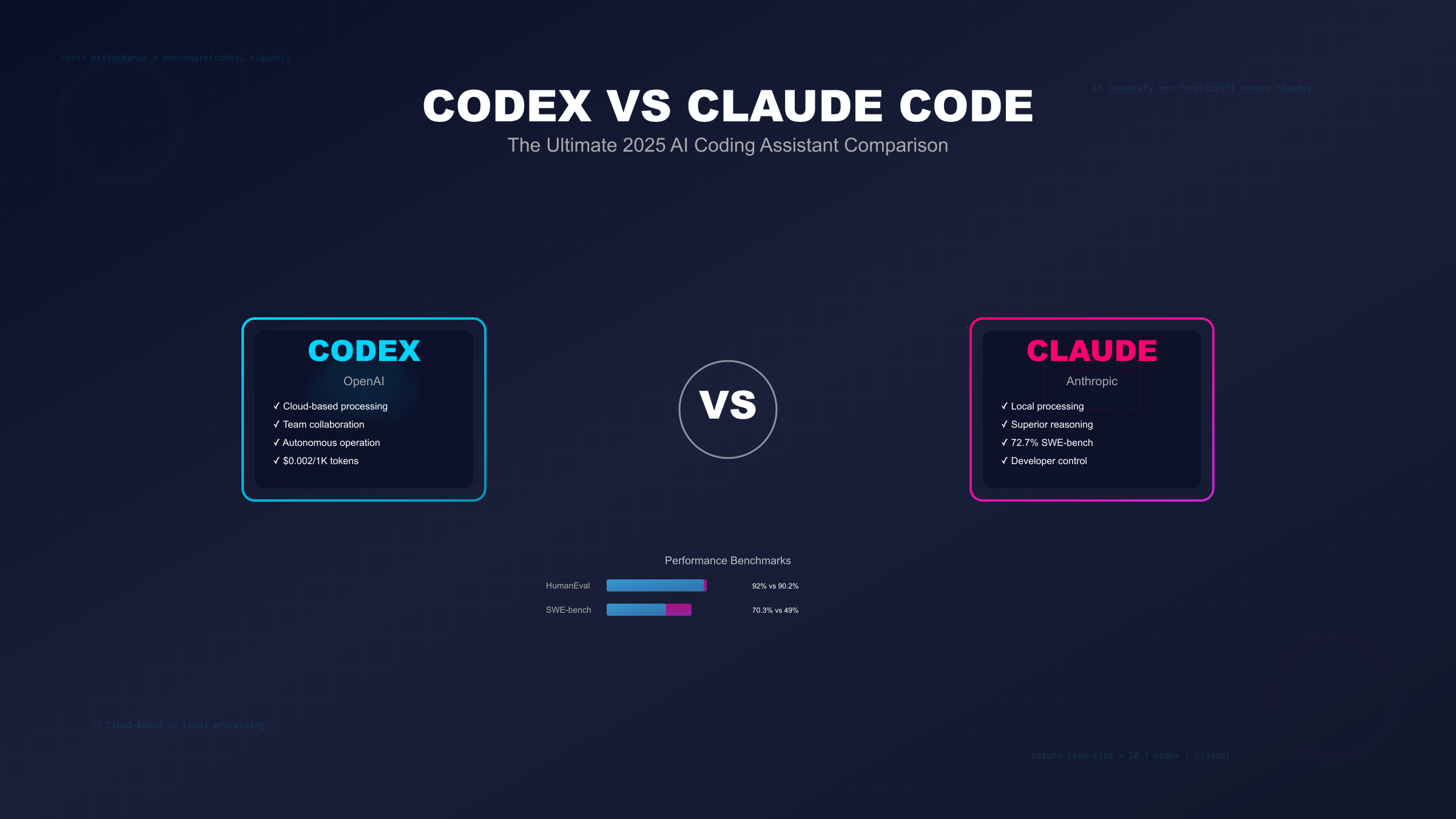AI Coding Assistants: Codex Offers Cost-Efficiency, Claude Code Excels in Comprehensive Tasks

A recent social media post by Haider. has highlighted the distinct advantages of AI coding assistants Claude Code and OpenAI Codex, suggesting that while Claude Code is "faster and great for everyday coding tasks," Codex offers "better reasoning for math-heavy problems and complex single-file code" and "makes fewer mistakes." The tweet also notes that "cc has more limits, even on the $200 plan," making Codex a more affordable option for many users.
Industry analysis corroborates these observations, indicating that OpenAI's Codex, often powered by GPT-5 or GPT-5-Codex, generally provides more generous usage limits and cost-effectiveness. While the base pricing tiers for both tools appear similar, GPT-5 is significantly more efficient than Claude Sonnet, leading to lower operational costs for Codex users. This efficiency translates into more usage for less money, with many users finding the $20 Codex plan sufficient, whereas Claude's plans, even at higher tiers, can quickly hit credit ceilings.
Claude Code, integrated with Anthropic's Claude Sonnet models, is recognized for its robust features, including sub-agents, custom hooks, and extensive configuration options. It excels in complex, detailed tasks requiring more reasoning steps and comprehensive documentation, making it suitable for production-ready code with thorough explanations and built-in test cases. However, its token usage can be higher, leading to increased costs for extensive projects.
Conversely, OpenAI Codex is lauded for its conciseness, faster raw generation, and cost-effective token usage. It provides direct, clean, and functional solutions, making it ideal for rapid prototyping or scenarios where design fidelity is not the primary concern. Codex also boasts strong GitHub integration, with its app effectively identifying and allowing fixes for legitimate bugs, offering consistency between its command-line interface and GitHub UI.
Ultimately, the choice between Claude Code and Codex depends on specific developer needs and budget. As Haider. summarized, "if you can afford it, having both is useful; otherwise, stick to codex." This sentiment reflects the broader market trend where developers may leverage different AI tools for varied aspects of their workflow, balancing comprehensive features with cost and efficiency.